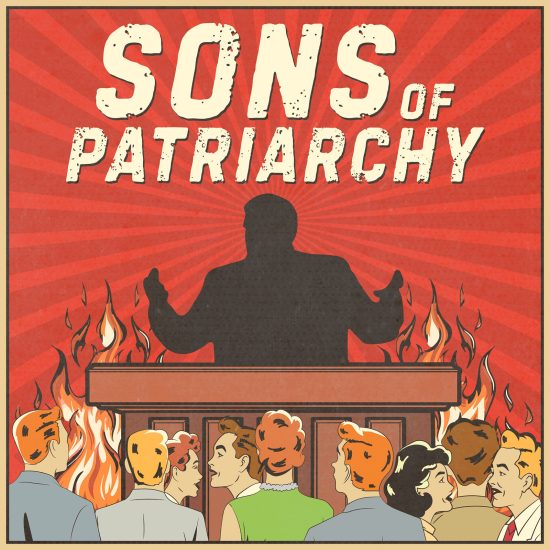
Four Catholic laypersons in St. Louis, Missouri, filed a joint lawsuit Tuesday (April 28) challenging the “draconian restrictions” in St. Louis County’s stay-at-home order that limit religious gatherings to no more than 10 people. The suit, Hawse et al. v. Page et al, names as defendants St. Louis County Executive Sam Page and St. Louis County Department of Public Health Director Emily Doucette. Both are medical doctors, as is one of the plaintiffs. A hearing in the case is set for May 7.
As of April 23, about 3.3 million people globally have been infected with the COVID-19 respiratory disease caused by coronavirus, and more than 233,000 have died. In the U.S., the country with the highest number of infected persons and deaths, nearly 1.1 million have tested positive and more than 63,000 have died.

In the suit, the plaintiffs argue the county’s order “prohibits plaintiffs’ free exercise of religion by banning religious services attended by more than 10 persons while permitting all manner of secular and commercial activities without similar restrictions.” The suit adds this abridges their “right of peaceable assembly” and deprives them of “liberty without due process of law.” The plaintiffs base their claim on the Free Exercise of Religion, Freedom of Expression, and Freedom of Assembly clauses in the U.S. Constitution, as well as on religious freedom clauses in the Missouri Constitution and Missouri’s Religious Freedom Restoration Act.
“They are Christians,” the suit explains about the plaintiffs. “Attending and participating in worship and fellowship in their church community, especially on Sundays, is an essential requirement of their sincerely held religious belief. As a result of restrictions imposed by the defendants … they have been unable to attend Sunday services and other religious activities in which they usually participate and they have been impeded in their exercise of rights to freely associate and assemble and to freedom of expression.”
“The urgent necessity for draconian restrictions like those insisted on by defendants do not exist and, therefore, present no compelling governmental interest, nor are defendants’ restrictions narrowly tailored or the least restrictive means of pursuing the asserted governmental interest,” the suit adds.
The suit refers to the seating capacities of the three different churches various plaintiffs attend to claim “there is ample space” for a crowd of at least 150 to safely attend worship in each facility while still exercising “proper social distancing.” Additionally, the suit notes each of the churches “is also equipped with hand sanitizers and other materials to enable visitors to observe appropriate hygienic precautions related to the COVID-19 situation.”
Although Missouri Governor Mike Parson will lift the statewide stay-at-home order and ban on mass gatherings on May 4, St. Louis County’s order will remain in place. It was initially issued on March 28 — six days before the statewide stay-at-home order — and then extended indefinitely on April 22. While churches were included in the list of “essential businesses” exempted from shutting down, they were still held in the order to “gathering size limitations” the county previously established on March 18 that banned events of more than 10 people.
Plaintiffs argue houses of worship are unfairly held to the gathering size limit while other essential businesses are not, such as “supermarkets, convenience stores, and other establishments engaged in the retail sale of food, dry goods, pet supplies, and any household consumer products, hardware stores, laundromats, home office products retailers, and public transportation.” Plaintiffs allege this means “the order discriminates on the basis of religion” even as religious services are given a partial exemption from the stay-at-home order that some other places are not. And they claim they are “suffering irreparable harm” by the restrictions on large worship gatherings.
One of the plaintiffs, Frank O’Brien, previously filed a suit in 2012 claiming the contraceptive mandate in the Affordable Care Act violated his religious beliefs. As the CEO of O’Brien Industrial Holdings, he wanted to prevent the health insurance for his 87 employees from covering birth control. Although courts initially rejected his arguments, the U.S. Supreme Court’s ruling in a similar case brought by Hobby Lobby ultimately created a religious exemption claim for secular businesses like O’Brien’s.
The attorney for the plaintiffs, Michael Quinlan, has also been outspoken about this faith, including penning columns in the Catholic publication Crisis. He served a short, controversy-filled stint leading the civil litigation section of the Missouri Attorney General’s Office under Josh Hawley (now a U.S. Senator). And Quinlan sparked controversy for his advocacy supporting former Bishop Robert Finn, the only U.S. Catholic bishop convicted for failing to report to government officials a priest suspected of child sex abuse.
The new St. Louis County suit also calls the stay-at-home orders in St. Louis and elsewhere “extreme” and a “hysteria-driven overreaction.” They add that the growing unemployment numbers are more problematic than the “lethality and transmissibility” of COVID-19. But some of the claims to justify the argument don’t match medical data and reports.
One reason the plaintiffs argue for removing coronavirus bans on mass gatherings is the claim the mortality rate of COVID-19 is “much lower than originally anticipated” and instead “are at levels seen with annual influenza.” However, while the mortality rate from the seasonal flu in the U.S. is only about 0.1 percent, the rate for COVID-19 has been about six percent. The suit also claims models in mid-March predicted many more deaths than have yet occurred — but those models were based on situations at the time when many states had yet to shut down.
The plaintiffs also claim “there is no rational basis or scientific justification for the gathering size limit of the order.” However, church services across the country have sparked dozens of virus hotspots, including in Arkansas, California, Georgia, Illinois, Kansas, Kentucky, and Washington.
Since the statewide ban on mass gatherings of more than 10 people also includes religious services, the county order won’t uniquely impact Sunday services until May 10. On Thursday (April 30), Judge Ronnie White granted the plaintiff’s motion for an expedited hearing. He will hear arguments via telephone on May 7 to consider their motion for a temporary restraining order to block the county’s order.
Similar cases across the country challenging mass gathering bans impacting in-person religious services have mostly failed to find support from judges. Courts have denied challenges by religious plaintiffs in California, Kentucky, New Hampshire, and Virginia. Only in Kansas did a judge grant a temporary injunction to block an order limiting the size of church services. Several of those cases have involved Baptists as plaintiffs, including in Kansas, Kentucky, and New Hampshire.






